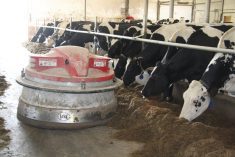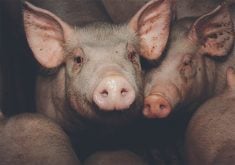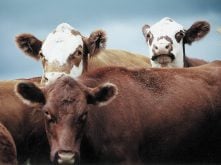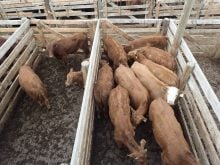WARNER, Alta. – Those who like a squirt of mustard with their hotdogs probably don’t know their favorite brand probably came from seeds grown close to home.
Canada produces about 150,000 tonnes of mustard a year, but only consumes about five percent of the domestic crop.
Of the 521,000 acres of mustard seed grown across the southern prairie and northern tier states, most comes from Saskatchewan. Alberta accounts for 70,000 to 90,000 acres.
Agricore has consolidated its Alberta mustard business by converting its wooden elevators at Warner into a mustard seed cleaning plant and storage area.
Read Also
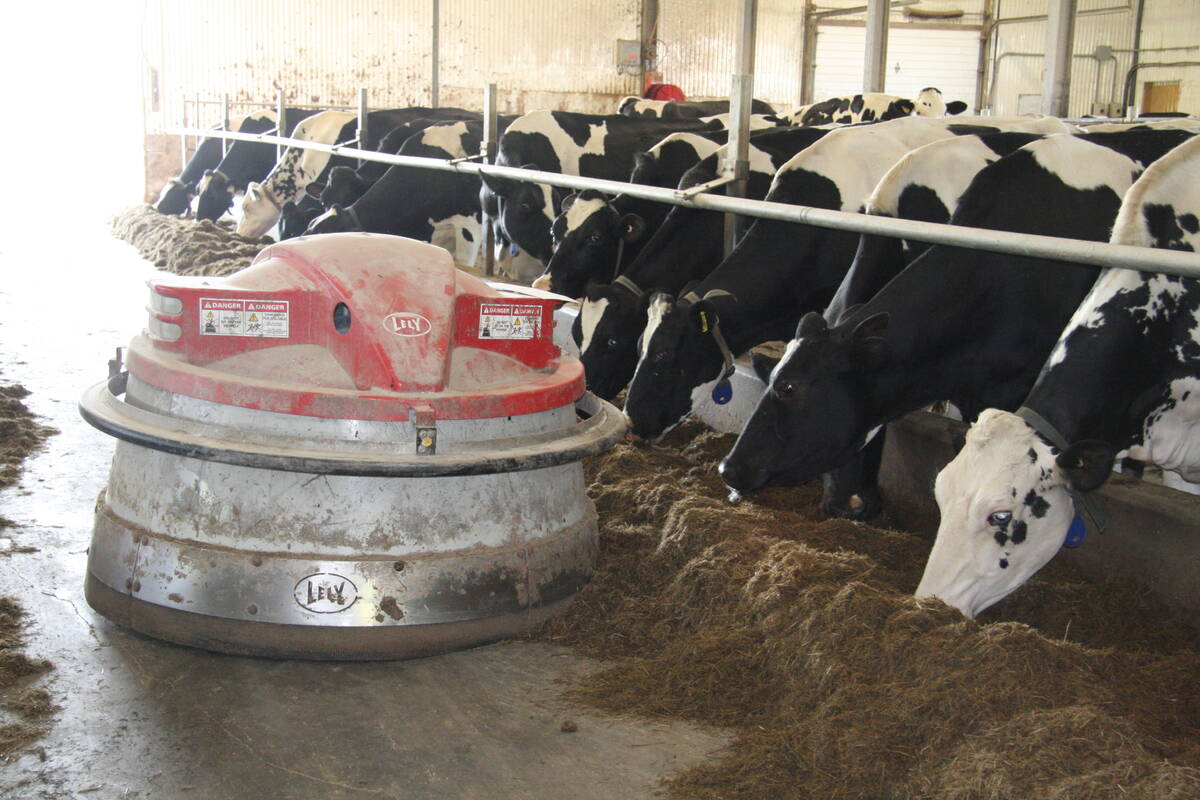
Partnerships, communication key to disease management
Communication and strong, trusted partnerships are key to managing infectious diseases like Foot and Mouth Disease and HPAI.
“We can store 10,000 tonnes in this arrangement,” said Johnny McDonnell of Demeter Agro, which was purchased by Alberta Wheat Pool in 1993 and is now part of the Agricore family.
McDonnell’s grandfather, Joe McDonnell, started the business in the late 1930s in Montana. He named the company Demeter, for the Greek goddess of living and growing things. As the company expanded, he moved to Canada to be closer to the growing area.
His son John and grandsons Steve and Johnny remain active in the mustard business.
Last fall, Agricore built a $1.4 million seed cleaning plant that can process about 30,000 pounds per hour. It can clean, package and ship bulk mustard seed all in one spot. Before the consolidation at Warner, the company used vacant elevators across southern Alberta for its mustard business. Many had poor truck access and limited capacity.
Demeter also has a 670,000-bushel terminal in Minneapolis, Minnesota.
It has production contracts with farmers in the three prairie provinces as well as Montana, Minnesota and North Dakota. The company provides the seed.
Growers may choose to plant yellow, brown or Oriental mustard. Each has a different taste and value.
When customers put in an order for mustard, farmers are called to deliver. The seed is then cleaned, graded and blended.
“We do a little blending so the customer gets the same thing all year long,” McDonnell said.
“We don’t convert No. 4 into No.1. We just give a consistent supply to the customer.”
Besides being a condiment, mustard is used in mayonnaise, pickling and in prepared foods.
Mustard powder processed at Alberta Industrial Mustard in Warner is used as a meat binder. The plant is owned jointly by Agricore and Newlywed Foods of Chicago.
The Alberta mustard crop doesn’t look promising this year. The bushy plant has a powerful taproot and can withstand a fair bit of dry heat and frost, but the severe drought in southern Alberta is proving to much for the plants to handle.
“We have crop inspectors looking right now and it doesn’t sound too good,” McDonnell said.



